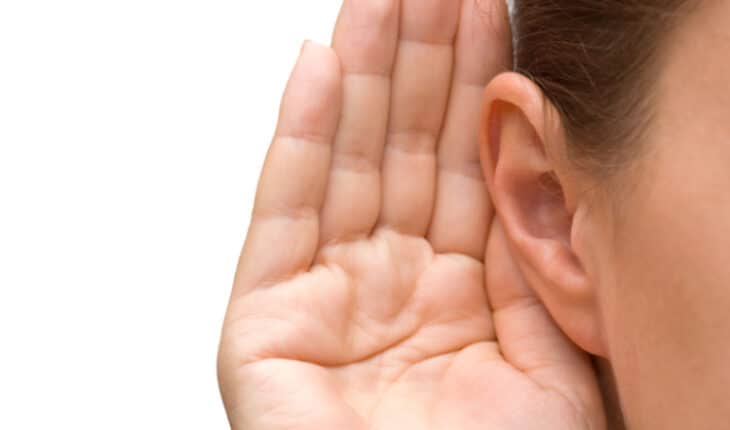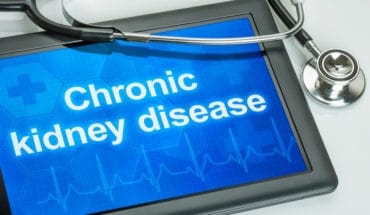The increasing prevalence of hearing loss across various age groups is a growing concern in the healthcare industry. It’s no longer solely an issue for the elderly but is now affecting individuals earlier in life, setting alarm bells ringing for medical professionals.
But why is this spike happening and how significant are modern risk factors? In this post, we’ll delve into five potentially impactful variables that might be pushing these statistics up.
5 Risk Factors At The Root Of Today’s Hearing Loss Epidemic
Today, over 1.5 billion people worldwide – or nearly 20% of the global population – have hearing loss to an extent. While these numbers already seem high, the WHO expects them to continue increasing through 2050 and beyond.
Understanding this trend is critical for many reasons, including:
- Identifying the risk factors that lead to hearing loss in today’s society
- Ensuring that patients have the necessary education to protect their hearing
- Alleviating the healthcare burden deriving from this condition
Below, we’ll look at some of the risk factors that are at the root of today’s hearing loss epidemic.
Excessive, Constant Exposure to Loud Noises
Nowadays, the high level of everyday noise exposure is a growing concern and is now considered to be a major public health issue. While going about your regular life, it’s hard to ignore the constant bombardment of sound, especially in urban settings.
Everything from roaring traffic, incessantly honking cars on busy roads, the hum and clatter at workplaces or crowded areas adds up quickly to an overwhelming noise pollution during hobbies, leading to excessive noise exposure.
Aging: A Natural Contributor to Hearing Loss
As we age, our body undergoes various changes, one of them being a gradual decrease in our hearing ability. Medical professionals refer to this natural process as presbycusis. Given today’s growing aging population, there’s a corresponding increase in the number of individuals suffering from hearing loss.
Neglecting Regular Hearing Check-Ups
Neglecting regular hearing check-ups is unfortunately something that many people tend to do. This is primarily because these check-ups are seldom included in the routine annual health tests and exams that people have. It’s important to remember, however, that incorporating periodic hearing assessments into your healthcare routine could help detect any issues early on.
Incorrect Use of Earbuds or Headphones
The surge in popularity of headphones and earbuds has had quite an unsettling impact on our listening habits. In today’s tech-driven age, it seems everyone, regardless of age, is permanently donned with a set of earbuds or headphones.
However, the persistently incorrect and excessive use of these devices can be one significant contributor to the increasing number of hearing loss cases we’re seeing.
Health Conditions Linking to Progressive Hearing Loss
There’s a clear correlation between certain health conditions and an increase in hearing loss cases.
For example, conditions like diabetes or hypertension can cause damage to the blood vessels and nerves in the ears, leading to decreased hearing ability. So, monitoring and managing these health issues can play a crucial role in slowing down or preventing progressive hearing loss.
3 Strategies To Tackle The Rising of Hearing Loss Cases
While some risk factors are not easy to modify, there are strategies that can be adopted by both healthcare providers and patients to tackle the growing number of hearing loss cases. Let’s look at these strategies in detail below.
Assisting Patients In Choosing The Best Hearing Aids
One of the key strategies to tackle the increasing number of hearing loss cases is assisting patients in choosing the best hearing aids. It’s crucial to consider their lifestyle and specific needs while opting for a hearing aid. Once you have determined the best type of device for their needs, explore together reliable reviews, such as bossa hearing reviews, to select a trustworthy provider.
Be sure to work with your patient to determine the best approach and find hearing devices that can be worn comfortably during any activity they take part in.
Providing Education on Hearing Protection Strategies
Initiating effective education on hearing protection strategies is key to tackling the growing number of hearing loss cases. Understanding and analyzing the inherent risks in high-noise professional environments, for instance, can empower patients to limit exposure.
Alongside these measures, it’s equally vital to recommend appropriate hearing protection devices regularly at work or in any noisy environment.
Monitoring Hearing Health as Part of Regular Checkups
The most effective way to combat the rise in hearing loss cases often begins with regular monitoring of your hearing health. This should become a routine part of any overall wellness check-up. By doing so, your patients can increase their chances of detecting any changes early, thus preventing severe outcomes such as social isolation or even dementia.
Working With a Specialized Audiologist
In conclusion, regular visits to a specialized audiologist should not be ignored. Health care providers, including family doctors, have a responsibility to their patients to suggest such recommendations for ongoing monitoring of their hearing health. This proactive approach can help detect any hearing issues early on and consequently, start treatment promptly – vastly improving the quality of life for many.
- Gut microbiome could delay onset of type 1 diabetes - 3rd April 2025
- The da Vinci 5 Robot Is Set To Transform Bariatric Care: - 31st March 2025
- Beyond money: the hidden drivers fuelling child food insecurity - 31st March 2025






